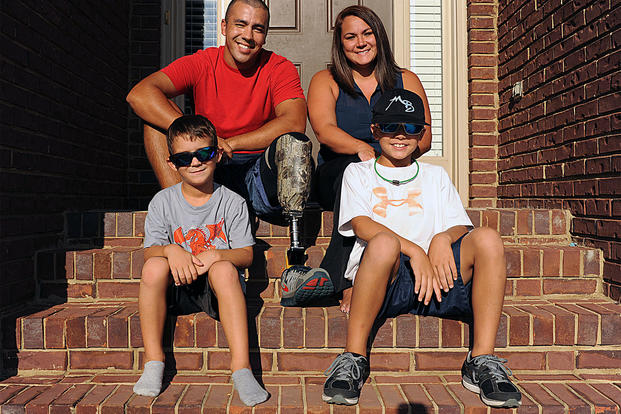If you're transitioning out of the military, your family will likely soon embark on a new journey with a completely different government agency -- the Department of Veterans Affairs.
While there are some things on which the Defense Department and the VA work together, for the most part they are two totally separate systems.
So what do you need to know about going through the VA process? Here are some basics.
Disability Rating and Pay
If your veteran goes through the VA disability process, there's a good chance he or she will be given some kind of "rating" and monthly payment for injuries or problems that started as a result of military service.
These injuries could be very minor or very serious, depending on the veteran. Getting them documented is important not just because the veteran may qualify for a disability check, but because the VA will pay for treatment of those medical issues.
And, as your veteran gets older, the chance of those things needing treatment increases. You want to be prepared for that before it happens.
When, exactly, your veteran is assessed by the VA will depend on a lot of factors. It could be before their last day in the military, or it might be after. To go through the process, they will attend a series of appointments with the VA where they report different injuries.
If you want to, you can attend these appointments with your veteran. If your veteran is dealing with serious injuries or any kind of traumatic brain injury or PTSD, attending might be in your family's best interest.
It's easy for troops with those injuries to forget to list certain symptoms or be unaware of the total extent of what they are experiencing.
Based on those appointments and evaluations, the VA will issue a disability rating decision, and your veteran will receive a check or direct deposit each month for any corresponding disability pension.
Keep in mind that the VA is likely to re-evaluate that rating over time, so the compensation amount could change later.
Timeline
It can take several months for the disability rating decision to be made and then processed.
Once it is done, the VA will back pay you any disability pay to the date on which the rating was decided. For example, if the decision and pay are processed in late September, but the rating was issued Aug. 1, you'll receive back pay to that date.
The Downside to a VA Disability Rating
Getting a disability payment from the VA comes with a few complicated downsides.
If your veteran received any separation pay when leaving active duty, he or she will be forced to pay that back by having the disability pay reduced by that amount. Consider holding onto that separation pay until a disability rating decision is made.
If your veteran retired or medically retired from the military, you could be subject to the "offset" rule that blocks him or her from receiving both a retirement pension and a disability pension. There are a bunch of different factors to that, so read more here.
If your veteran happens to be in the National Guard or Reserve while receiving disability pay, he or she will not be able to also receive National Guard or Reserve pay.
Health Care for Your Veteran
Depending on the rating your veteran receives, he or she will be able to receive some or all health care from the VA going forward. But unlike life with the Defense Department, your family will likely not be eligible. You can find out more here.
How will your veteran's health care work through the VA? Find out more here.
Most Benefits Are for Your Veteran -- But Some Are for You.
While the VA's job is to take care of your veteran, there may also be some benefits for you and your family. Take a look at them over here.
Keep Up with the Ins and Outs of Military Life
For the latest military news and tips on military family benefits and more, subscribe to Military.com and have the information you need delivered directly to your inbox.























